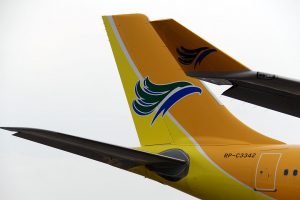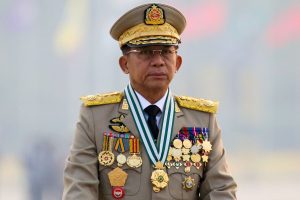Cebu Air says leadership change to support growth plans

CEBU AIR, Inc. (CEB) said recent leadership changes in the company form part of its succession planning as it seeks continued growth and to become more “globally competitive”.
“It’s really about succession planning and really preparing us for the next phase of growth of the airline,” CEB Vice-President for Marketing and Customer Experience Candice Jennifer A. Iyog said at a media briefing on Tuesday.
“With the amendment of the Public Service Act last March 2022, which is really intended to make Philippine businesses globally competitive, this is now going to enable us to actually hire or have a chief executive officer (CEO) who has experience and expertise who can help us with the next phase of our growth regardless of nationality,” Ms. Iyog added. “But having said that, it’s also good to know or be reminded that 96% of our employees are Filipino.”
The amended Public Service Act was signed in March to allow up to 100% foreign ownership of public services in the country.
On Monday, CEB said in a disclosure to the local bourse that it has appointed its president and CEO Lance Y. Gokongwei as chairman, which will give him the responsibility to preside over all meetings of the stockholders and the board.
Meanwhile, it elected its current chief executive adviser, Michael Szucs, as CEO, while its incumbent chief commercial officer, Alexander G. Lao, will also be the president of the company in addition to his existing position.
The appointments, as approved by the company’s board of directors, will be effective by Jan. 1.
Meanwhile, the company said it will be adding 11 brand new Airbus NEO aircraft to its fleet in 2023 to support its growing capacity and travel demand.
The 11 additional planes are: three A320neo, four A321neo, and four A330 neo.
“All aircraft deliveries will use blended Sustainable Aviation Fuel (SAF) as part of the airline’s sustainability efforts,” the company said in a press release.
The carrier aims to transition to an all-NEO fleet by 2028 and incorporate the use of SAF for its entire commercial network by 2030.
The company said it has now restored 92% of its system-wide capacity and expects to fully recover by next year. — J.I.D. Tabile




